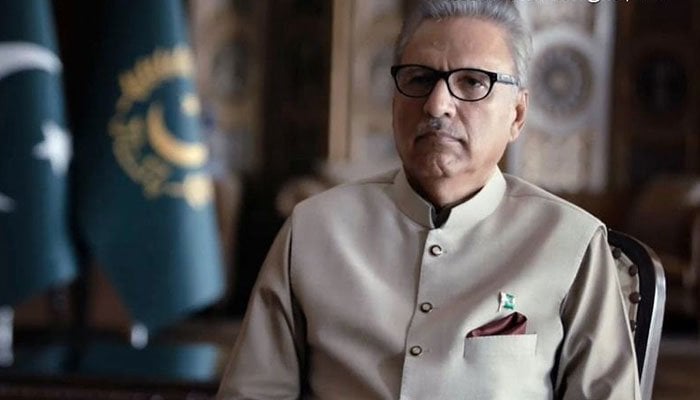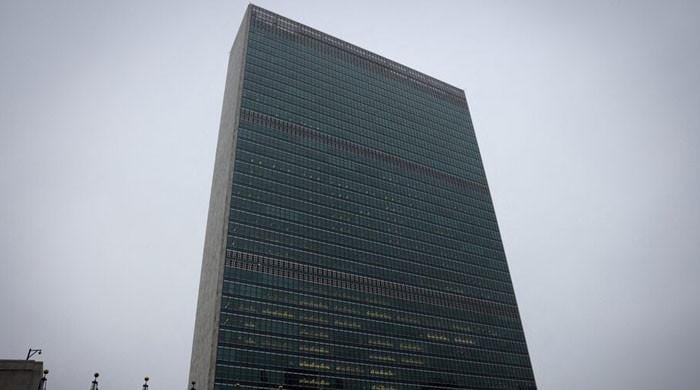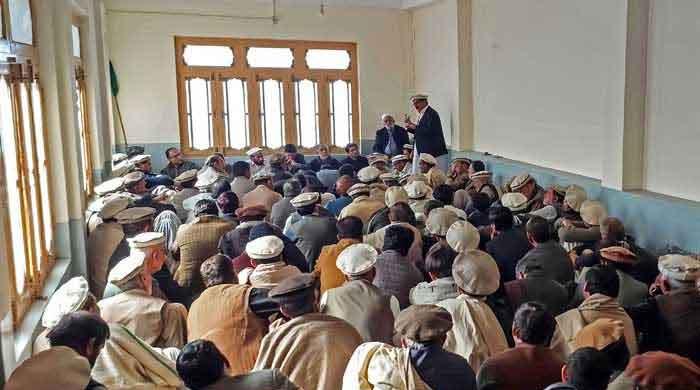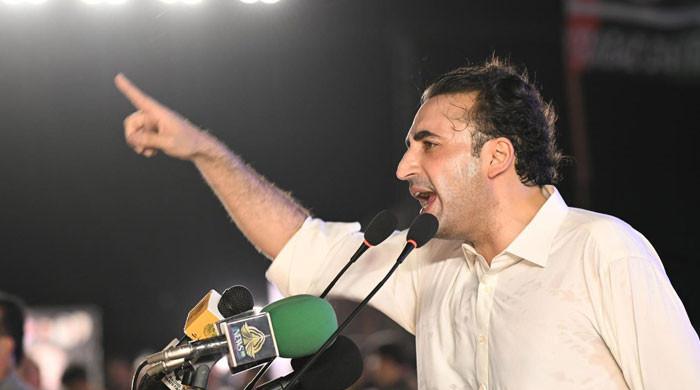President Arif Alvi signs ordinance for open balloting in Senate elections
Ordinance says that if Supreme Court finds Senate elections do not fall under Article 226 of the Constitution, an "open and identifiable ballot" will be held
February 06, 2021

- President Arif Alvi ratifies Ordinance which is still subject to the Supreme Court's ruling on a presidential reference in the matter
- Ordinance says that if Supreme Court finds Senate elections do not fall under Article 226 of the Constitution, an "open and identifiable ballot" will be held
- Opposition has slammed the move; Bilawal questions rush to promulgate Ordinance when the matter is sub-judice
President Arif Alvi on Saturday signed the Elections (Amendment) Ordinance 2021 to pave the way for Senate elections to be held via an "open and identifiable ballot".
According to the Ordinance, a copy of which has been shared by the president on his Twitter account, changes have been brought to Sections 81, 122 and 185 of the Elections Act, 2017.
The Ordinance will come into effect "at once" and "extend to the whole of Pakistan".
It has been made subject to a pending opinion by the Supreme Court on a presidential reference in the matter.
'Secrecy is important,' says CJP in Senate elections reference
"Provided that in case the Supreme Court of Pakistan gives an opinion in Reference No. 1 of 2021 filed under Article 186 of the Constitution, that elections for the members of the Senate do not fall within the purview of Article 226 of the Constitution, the poll for elections for members of the Senate to be held in March, 2021 and thereafter shall be conducted by the Commission through open and identifiable ballot," reads the Ordinance.
According to Section 226 of the Constitution: "All elections under the Constitution, other than those of the Prime Minister and the Chief Minister, shall be by secret ballot".
The Ordinance further states that after the Senate polls, if the head of a political party wishes to see the ballot cast by any member of his party, the Election Commission of Pakistan shall show them the same.
Federal Cabinet approves summary
Earlier in the day, the Federal Cabinet approved a summary to promulgate the ordinance to make an amendment to the Election Act, 2017 to hold the Senate polls through an open ballot.
According to Geo News, the approval was taken from the cabinet through a circulation summary as there is not much time left for the legislation. The Election Commission of Pakistan has announced it will issue the schedule for polls on February 11.
Sources said that Attorney General of Pakistan (AGP) Khalid Jawed Khan drafted the ordinance which was sent to Prime Minister Imran Khan for approval. It was then sent to President Arif Alvi for ratification.
Earlier this week, the government tabled a bill in parliament to legislate on the matter but the efforts went unsuccessful due to a protest in the National Assembly.
Opposition against open ballot
The Opposition parties have accused the government of tabling the bill because it "fears that the PTI lawmakers will not vote for it".
Following news of the federal cabinet approving a summary, PPP Chairman Bilawal Bhutto-Zardari vowed to not let the government "violate the sanctity" of the secret ballot in the Senate elections.
The PPP chairman questioned the need to promulgate an ordinance when the matter is sub judice and a court ruling is awaited.
Will not allow govt to violate sanctity of secret ballot in Senate elections: Bilawal
Furthermore, in a meeting between PDM chief Maulana Fazlur Rehman and PML-N Vice President Maryam Nawaz before Alvi ratified the Ordinance, it was agreed that the procedure for Senate elections can not be changed without a constitutional amendment.
Fazlur Rehman said that if it comes to it, PDM will approach the court over the matter.
The presidential reference
The reference, filed by the government in the Supreme Court, says that the president has sought the apex court's opinion on whether the condition of holding a secret ballot referred to in Article 226 of the Constitution is applicable only for the elections held under the Constitution such as the election to the office of president, speakers and deputy speakers of the Parliament and provincial assemblies and "not to other elections such as the election for the members of Senate" held under the Elections Act 2017 enacted to pursuant to Article 222 read with Entry 41 (1) of the Fourth Schedule to the Constitution "which may be held by way of secret or open ballot" as provided for in the Act.
According to the government, the nature of the elections and the way it is conducted has not been clearly mentioned in the Constitution.
The government has said that the election for the Senate is conducted in accordance with the Election Act of 2017 and asked if it is possible to introduce the idea of open-balloting in the Upper House of the Parliament.











